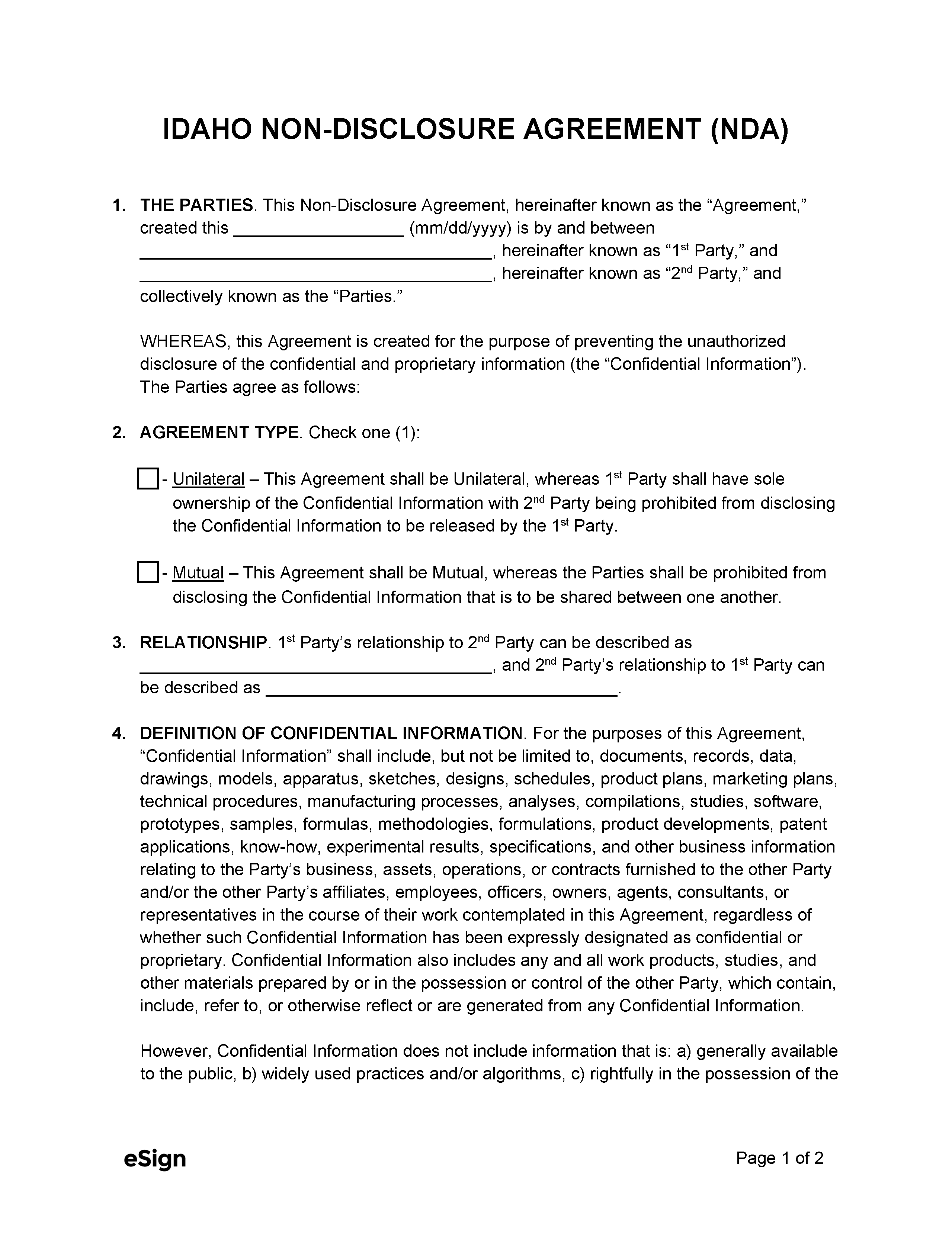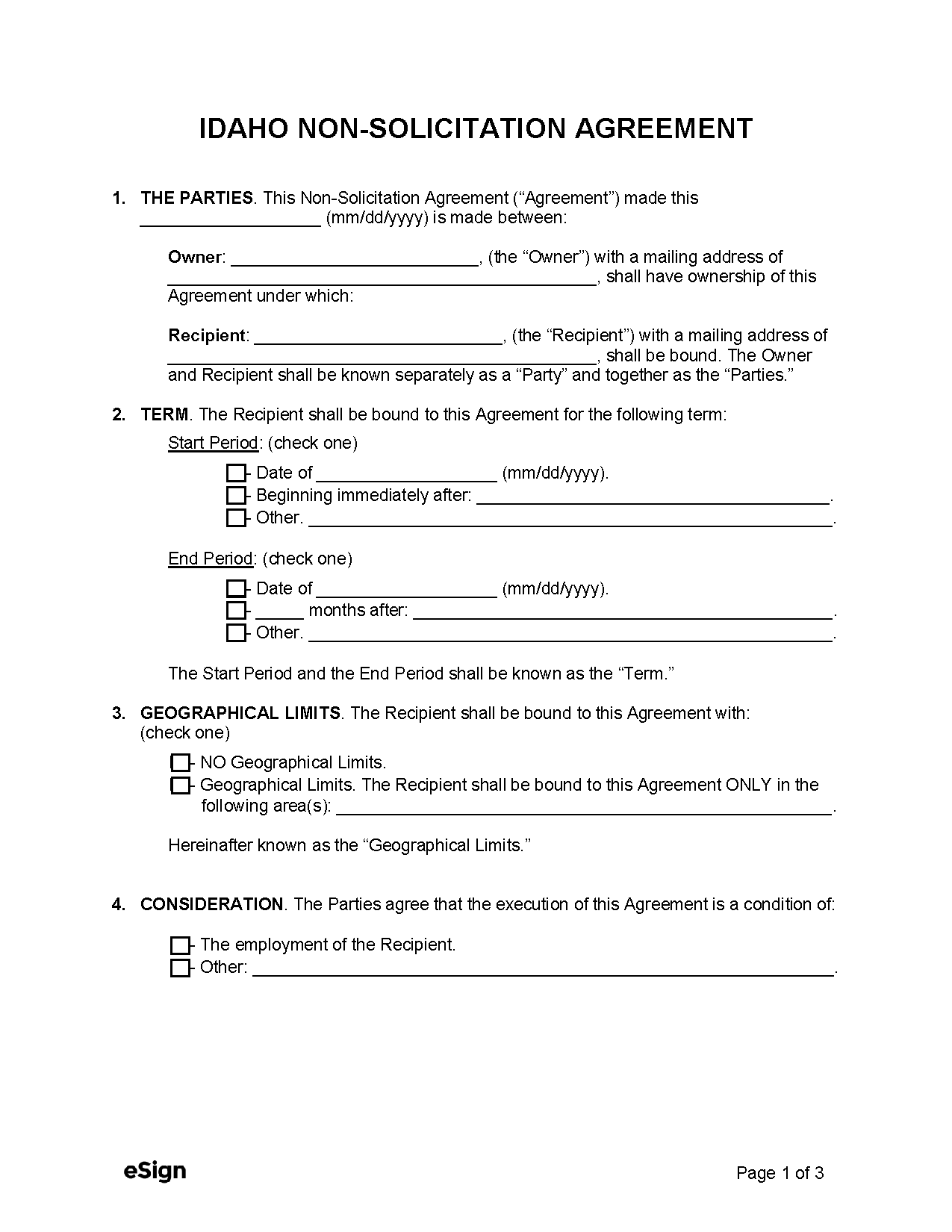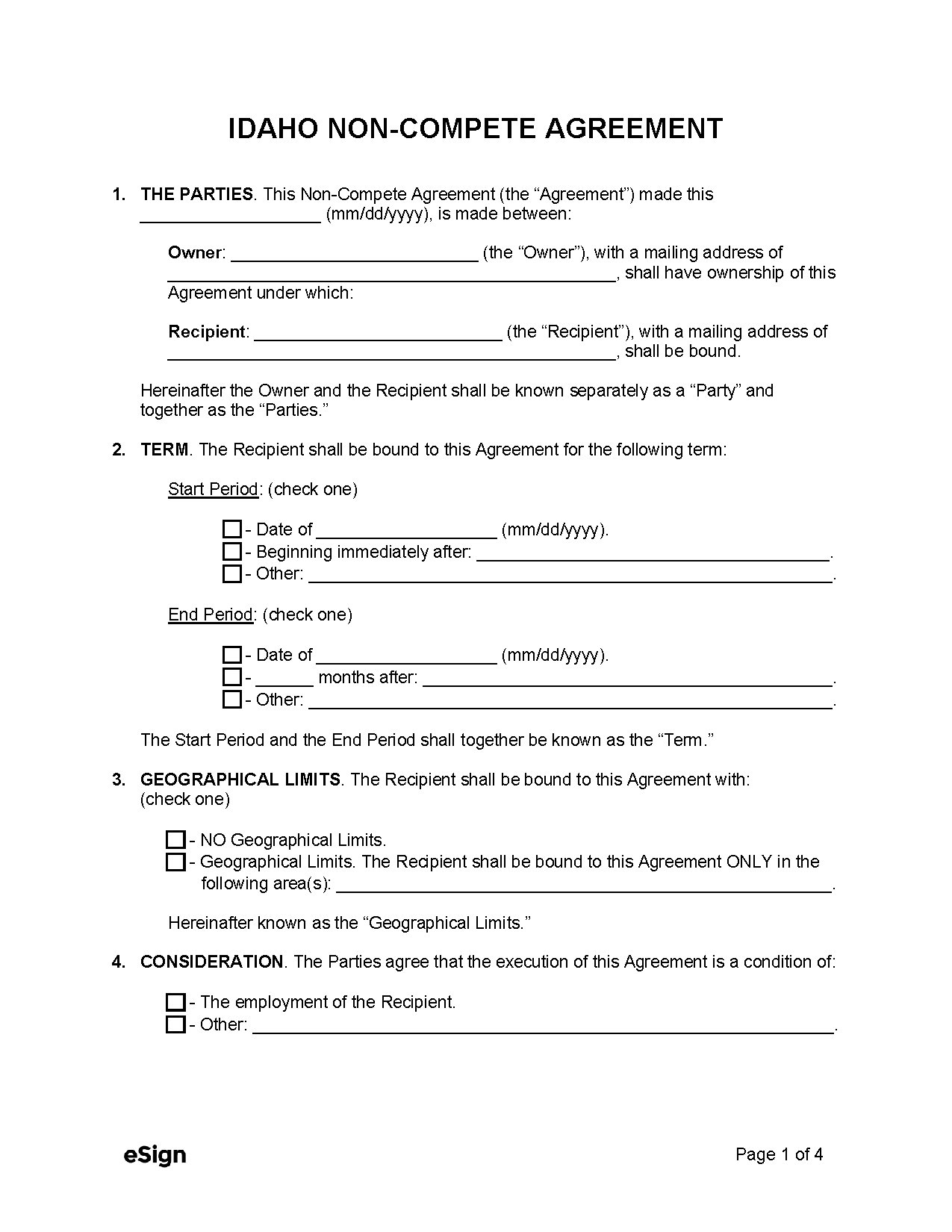Employers will generally set time and geographic limits in which the signing party may not compete, though the restrictions must be reasonable for them to be enforceable. Under Idaho law, non-compete agreements are only valid for “key” workers or contractors; i.e., those who have the ability to threaten the employer’s interests.
Contents |
Enforceability in Idaho
Non-compete agreements are enforceable on employees and independent contractors in Idaho, so long as they adhere to the state code.[1] Courts will also look to common law when determining reasonableness of covenants not to compete. As per state code, an agreement’s enforceability is primarily determined by the following:
- If the restriction protects a valid interest.
- If the restriction is reasonable and not greater than necessary to protect the employer’s business interests.
- If the restricted party is a “key” employee or contractor (see below).[1]
Pursuant to state common law, agreements must:
- Be supported by consideration.
- Adhere to public policy.
- Not be unfair or severe to the signing party or public.[7]
When it IS Enforceable
- Legitimate business interest. A non-compete agreement may only be used to protect an employer’s valid interest (e.g., goodwill, trade secrets, customers, etc.)[2]
- Key employee or contractor. The party signing a non-compete must be a “key” employee or independent contractor. A court may presume an individual that is among the 5% of the company’s highest-paid workers to be a key employee or contractor unless the individual in question can prove that they cannot adversely affect their employer’s business interests.[2][3]
When it’s NOT Enforceable
- Legal practice. A restrictive covenant may not be placed on an attorney except in the case of agreements dealing with retirement benefits or in connection to the sale of a legal practice.[4]
- Foreign physicians. Physicians trained outside of the country brought to Idaho communities with a shortage in physicians may not be restricted from practicing or residing in the community post-employment.[5][6]
- Ordinary competition. Employers typically do not have a right to protection from “ordinary competition.”[7]
Furthermore, courts will not enforce a restriction that:
- Imposes more restrictions than necessary to protect the employer’s business interest;
- Is “unduly harsh” or “oppressive” to the restricted party; or
- Negatively affects the public.[7][8]
Maximum Time Period
Eighteen (18) months after the worker or contractor’s employment has ended is presumed to be a reasonable duration for a non-compete agreement. A longer period, however, may be accepted if other consideration in addition to employment is provided.[3]
Geographical Area
A geographic restriction may be considered valid if it is limited to where the employee or contractor worked or has considerable influence/presence.[3]
Consideration
According to Idaho law, consideration is required for a non-compete to be enforceable.[3] Consideration is something of value provided by one party in exchange for another party’s acceptance of a contract. For non-compete agreements with a restriction of eighteen (18) months or less, prospective or continued employment is deemed as adequate consideration. Further consideration must be provided for non-compete agreements exceeding eighteen (18) months.[3]
Sources
- Idaho Code § 44-2701
- Idaho Code § 44-2702
- Idaho Code § 44-2704
- Idaho Rules of Professional Conduct Rule 5.6
- Idaho Code § 39-6109
- Idaho Code § 39-6109A
- Freiburger v. J-U-B Engineers, Inc., 141 Idaho 415, 111 P.3d 100 (Idaho 2005)
- Pinnacle Performance, Inc. v. Hessing, 135 Idaho 364, 369, 17 P.3d 308, 313 (Ct. App. 2001)
- Idaho Code § 44-2703
Related Forms (2)

Download: PDF, Word (.docx), OpenDocument

Download: PDF, Word (.docx), OpenDocument
